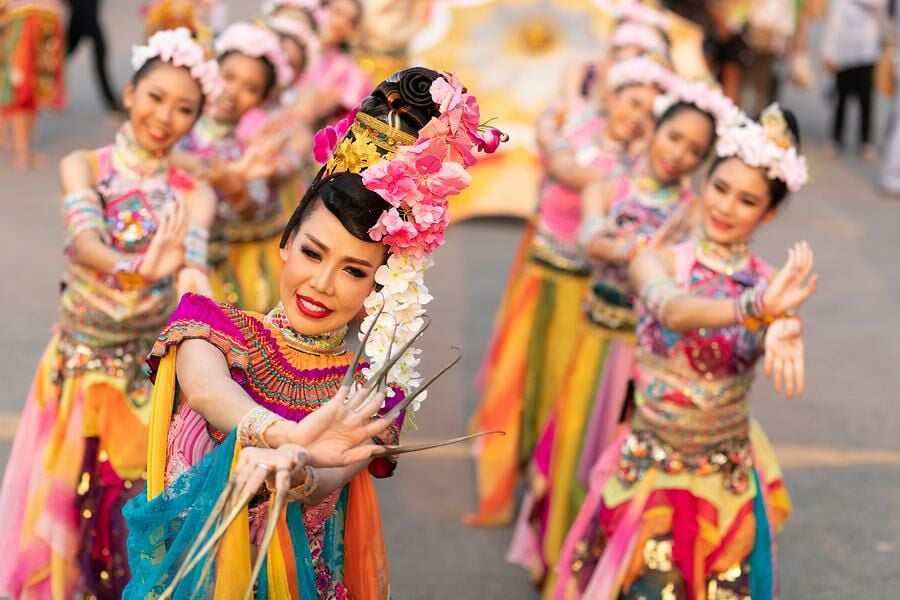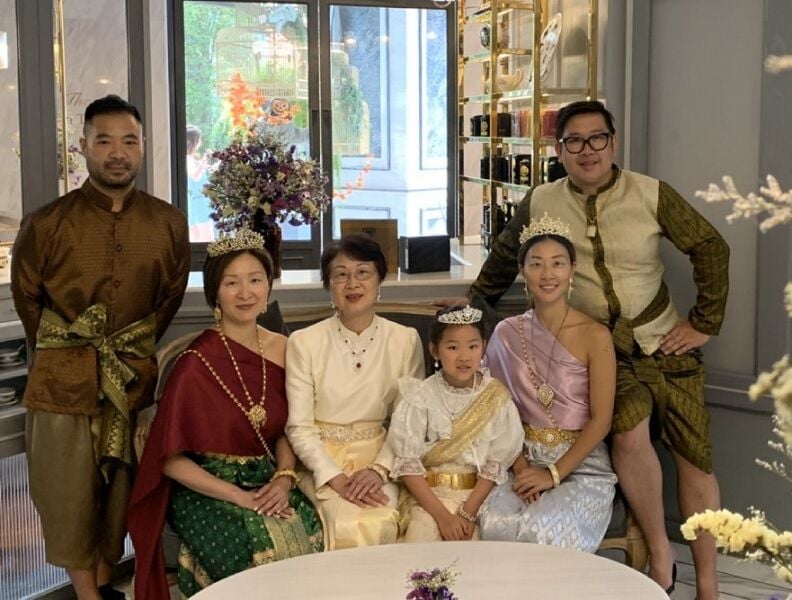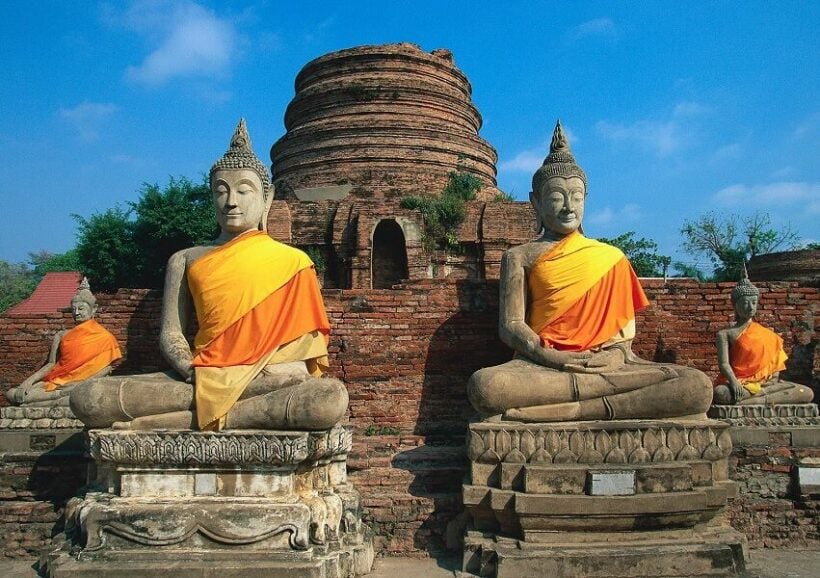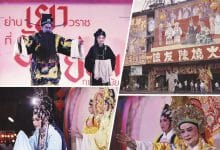East vs west: Surprising family culture differences

When you think about family traditions and cultures, it’s fascinating to see how diverse practices can be across the globe. Western and Thai family cultures, for instance, present a stark contrast in their approach to living and values. While Western families often value independence, leading them to establish separate homes after marriage, Thai families in rural areas prefer to stay close, sometimes under the same roof.
How a typical Thai family looks like
Peering into the heart of Thailand, you’ll find the family unit not just central but sacred. Structure and roles within these families often extend beyond the nuclear model familiar in the West. In Thailand, it’s commonplace to see three, sometimes four generations, nestled under one roof. This setup contrasts sharply with the Western notion of independence post-marriage.

33.6% of Thai families share their homes across generations, a figure highlighted in UN data from 2015. These households usually include parents, their children, grandparents and occasionally great-grandparents. But what sets a Thai family apart is not just its size but its hierarchy and dynamics.
At the core of each family is a patriarchal structure. In these households, fathers or elder males assume the helm, making pivotal decisions for everyone. This tradition stems from deep-rooted cultural values that emphasize reverence and respect within the familial hierarchy.
6 Things about Thai culture that contrasted with the USA
1. Religion plays a central role in Thailand
In Thailand, Buddhism permeates daily life more visibly than religious practices in America. You’ll notice instructions on public transport asking passengers to offer their seats to monks. This highlights the profound respect for religion ingrained in Thai culture, contrasting sharply with the more secular approach often found stateside.
2. Extended families are the norm in Thailand
Unlike in the US, Thai households commonly include multiple generations under one roof. This setup underscores the tight-knit family units prevalent in Thai culture. Parents, grandparents, aunts, and uncles frequently contribute to raising children, showcasing a communal approach to family life that’s less common in America.
3. Thai youths stay home longer
In Thailand, it’s typical for young adults to live with their parents well into adulthood, often until marriage. This practice starkly contrasts with the American emphasis on independence, where young adults tend to leave the family home sooner to forge their paths.
4. Understanding ‘Yes’ in Thailand
In Thai culture, confrontation is usually avoided. So, a ‘yes’ might not always mean agreement but rather a polite acknowledgement. This nuanced communication style differs significantly from the more straightforward approach valued in American conversations.
5. The importance of royalty in Thailand
Royalty holds an exceptionally revered place in Thai society. The deep affection and respect for the monarchy highlight a cultural emphasis on reverence for authority not mirrored to the same extent in the US, where attitudes towards leaders are typically more questioning and critical.
6. Cultural significance of feet in Thailand
In Thai culture, feet are considered the lowest part of the body and thus, not just another body part. Pointing your feet at someone or something important is viewed as highly disrespectful. This belief contrasts with American norms, where the significance of feet is largely limited to their practical or aesthetic aspects.
Regarding speaking:
Speaking habits can greatly distinguish Western families from those in Thailand. Your understanding of these contrasts can enrich your grasp of both cultures.
From the west:
When you’re interacting with Western families, you’ll notice a straightforward communication style. In American culture, for example, people often express their thoughts and feelings directly. Saying “no” to requests or invitations happens openly, albeit with politeness. This directness stems from a strong emphasis on individualism, where voicing personal opinions and asserting oneself is the norm. The Western approach to communication, devoid of the concept of ‘face’ or social standing central to Thai culture, reflects this individualistic mindset.
From the Thais:
In contrast, Thai families operate within a nuanced communication framework that prioritizes harmony and respect. You’ll find that telling white lies, or withholding direct refusals, is common to avoid causing discomfort or ‘losing face’. The concept of face represents a person’s reputation or dignity within the social context, and it’s crucial in Thai interactions. This indirect communication style bolsters communal ties and reinforces a supportive family structure. Expressions of love and affection might also be more subdued, focusing on actions and shared responsibilities rather than explicit verbal declarations.
Religion:
When you delve into the heart of family cultures, you’ll find religion plays a vital role in shaping values and traditions. This stands true for both Western and Thai families, albeit in profoundly different ways. Let’s explore these differences to better understand how they influence family life and interpersonal relationships.

From the west:
In contrast, Western families typically hail from a diverse array of Christian denominations, from Protestant to Catholic. Here, religion often underscores a more individualistic approach to life, with a strong emphasis on personal salvation and an afterlife. Despite this diversity, you’ll find that religion in the West doesn’t uniformly dictate daily life as it does in Thailand. Western families may observe religious traditions, but secularism and personal freedom often take centre stage, allowing for a broader interpretation of religious practices.
From the Thais:
In Thailand, Buddhism isn’t just a religion; it’s a way of life that permeates every aspect of society. As the cornerstone of Thai culture, Buddhism shapes moral values, family bonds, and social conduct. Embracing Buddhism, you’ll discover a world where harmony, respect, and communal living are cherished above all. Thai families often incorporate Buddhist teachings into daily life, fostering a warm and interconnected environment. Learning about Buddhism can significantly deepen your appreciation and understanding of Thai culture, shedding light on the communal spirit that defines Thai family life.
Discover prevalent misunderstandings between Thais and foreigners in our insightful article on common communication challenges.
Latest Thailand News
Follow The Thaiger on Google News:


























